Dhanunjay Seepana on completing a decade as a Telugu film singer, adapting to trends and the road ahead | Exclusive
The popular playback singer, who made a mark with songs like Bhaje bhaaje, Naa Madhi, is keen on treading the independent music-route in the future
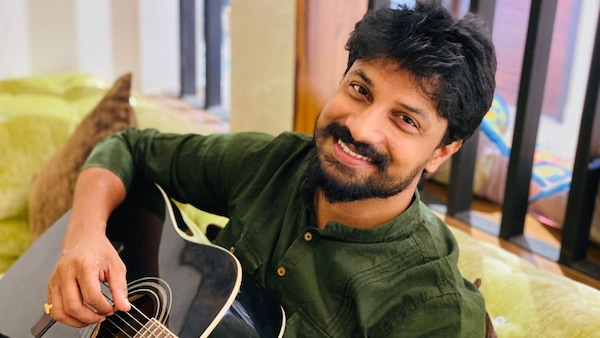
Last Updated: 09.06 PM, Mar 12, 2023
Dhanunjay Seepana was a natural with singing quite early into his childhood even without much classical training. With a push from near and dear, he took his abilities more seriously and gradually embraced the academic side of Carnatic music too. Though opportunities in the film industry weren’t his top priority, he gave it a chance with the hope of furthering his career in music.
While Ramana Gogula introduced him as a playback singer with Teja’s Veyyi Abaddalu, several leading composers, from Anup Rubens to Mani Sharma to Devi Sri Prasad, Anirudh Ravichander gave him plum opportunities in several notable films. With numbers from Loukyam to Gopala Gopala to Katamarayudu to Raghuvaran B Tech and Thiru recently, he never had a reason to look back.
As the talented singer completes a decade in playback singing, he reminisces about his beginnings and eventful career in a chat with OTTplay.com
Film numbers and classical music, two crucial links to his singing career
My initiation into music was through cinema. While I was singing film numbers in my childhood, many friends encouraged me to learn classical music, for which I shifted to Vizianagaram. Even without any training, I used to render complex film numbers with ease, though I realised later that I was making a few mistakes with the swarasthanas.
With my innate singing abilities, I was wrapping up my classical lessons earlier than the rest. I completed a four-year certificate course within one and a half years and finished my music diploma later. I was thinking of alternatives to further my career, films were on my mind and I settled in Hyderabad. I enrolled in an MA, course at Telugu University soon.
I was part of reality shows, chorus groups for a few music directors. I eventually debuted with Ramana Gogula’s Veyyi Abaddalu; he liked it a lot and the song became popular. I later sang for Oka Romantic Crime Katha and was a regular with Anup Rubens for his track songs. He gave me playback singing opportunities in Prema Kavali, Gunde Jaari Gallanthayyinde and Loukyam. Choodu Choodu from Loukyam was a major break in my career.
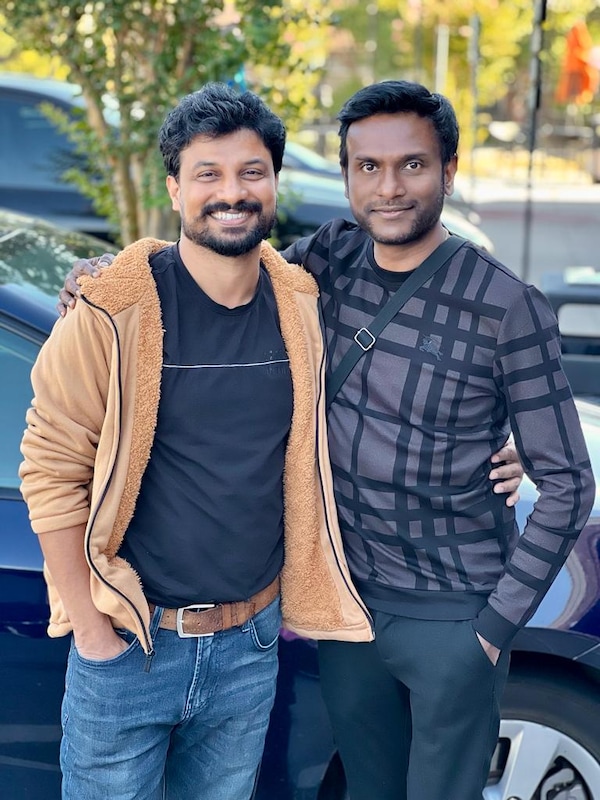
Changes in trends over a decade
When I started, many Tamil singers ruled the roost and composers gave first priority to them. Many of them wanted us to imitate them and sing on similar lines. Opportunities came based on your similarity to the popular Tamil voices and Telugu singers weren’t the first priority. Now, it has changed for the better.
The focus is on tapping new talent now; it has helped that most of the viral songs in recent years were all sung by local singers. Say, Anurag Kulkarni’s Pilla Raa from RX100 was the most popular song even though the album had numbers by many singers from other states. In Gopala Gopala, though Hindi singers crooned for it too, my song Bhaje Bhaaje was the biggest hit. Hits/flops decide your progress. Even if a good song isn’t popular, the industry doesn’t value it much.
Popularity of a song, no longer dependent on the success/failure of films
Previously, audio launches were held and the songs were rendered at the event. Now, they organise a pre-release event while individual songs are released through Youtube. Back then, the success/failure of a film affected the music. I don’t think it’s the case now. Undiporaadhe, Babu O Rambabu are hit numbers and I’m not sure if many even know the films’ names (Hushaaru, Kevvu Keka).
One of my recent songs, Naa Madhi (from Thiru), wasn’t even uploaded on Youtube before release but it went viral later. Gone are the days where the name of a film affected the fate of a song. Every song has its own identity irrespective of the film these days.
Do metrics of songs convey the true picture of their popularity?
Change is the only constant in life. Popular music labels shell out big money even today to acquire music rights and several music streaming platforms need to pay them to access the tracks. The money flow still exists but the numbers have become a measure to assess the popularity of the song. It’s the order of the day and one needs to live with it.
Hasn’t access to music increased as a result of digitalisation? Earlier, many may not have had the money to buy cassettes/CDs but songs are readily available to all today. We can’t decide if the digitalisation of music is good or bad - it’s just the way to reach out to audiences and the numbers decide the impact it has made.
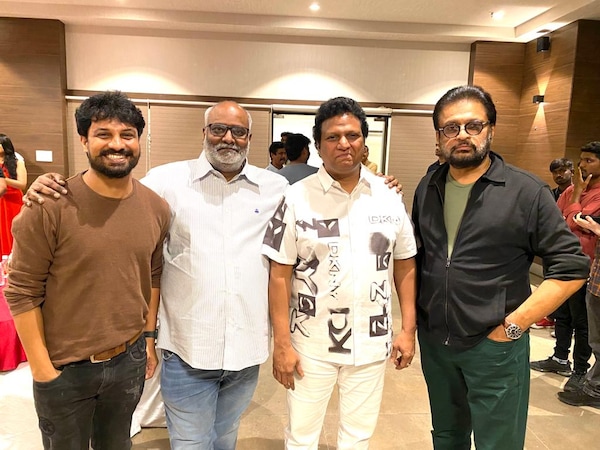
His view on actors-turning-singers and remixing yesteryear numbers
Certain trends come and leave and this is also one among them. Everyone wants their pie of the success formula and makes use of it. It’s not here to last forever; the moment there’s another trend, the industry will latch onto it. Ultimately, audiences decide what will last and what won’t. In fact, the early years of playback singing had many actors - from Chittor Nagaiah to S Varalakshmi to Bhanumati - who crooned for numbers in the films they acted.
The difference between handling playback singing and live shows
One’s own personality decides how good one’ll be at live shows and playback singing. A shy, submissive person may not be a natural with public appearances and audiences may/may not like their body language/mannerisms. In my case, I was a performer first and a playback singer later.
I started with reality shows like Super Singer, people liked the way I sang with a smile. With playback singing, the challenge is different - you need to adapt according to the needs of the composer. It’s like raising someone else’s child and handing it back to them.
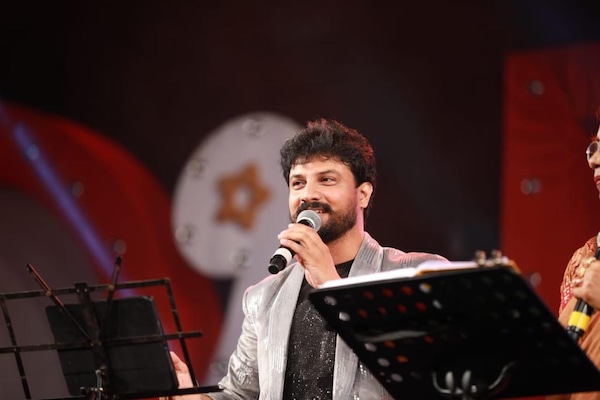
Understanding Telugu cinema music better through his PhD
Right after my MA in Music and while working with the likes of Mani Sharma, I was keen on learning a musical instrument and began my guitar and piano lessons. While I was learning, I became increasingly curious about the importance of instrumentation in a music composition. When I began my PhD and was interacting with my guide, I conveyed my interest in research music instruments.
My guide advised me to narrow down my thesis between films made in 1960 and 2010 and focus on a few instruments. I chose flute, veena and violin and looked back at their usage in Telugu cinema within the given time frame from the days of S Rajeswara Rao. I concluded my thesis by adding that regardless of the popularity of electronic music, manual instruments will always have a place in the industry and add soul to a composition.
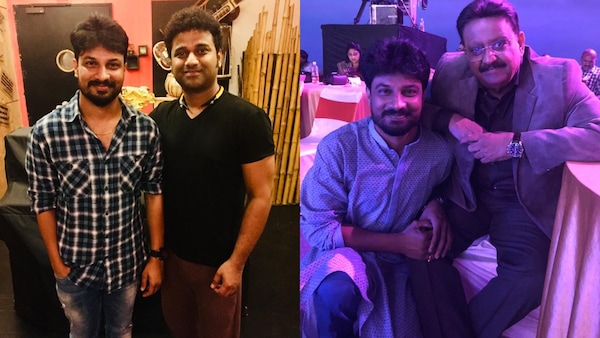
The secret to his longevity…
When you do a job, you always need to upgrade your skill set from time to time. With the advent of social media, there’ll be several musical sensations who become popular overnight but many fade out quickly because their skill set is quite limited. A strong musical foundation will help you to last long in the industry. Today, regardless of the song situation or the composer, I’m ready to sing any kind of number and preserve its soul.
The road ahead…
The scope of the music industry has widened in recent years and a singer needn’t limit himself to film songs alone to make a mark among listeners. While Hindi cinema has already embraced that trend, the likes of Mangli, Rahul Sipligunj and Roll Rida scored big with their independent numbers. Independent music helps us set our own rules. I want to come up with my singles and albums beyond films in the times ahead.
Subscribe to our newsletter for top content, delivered fast.

